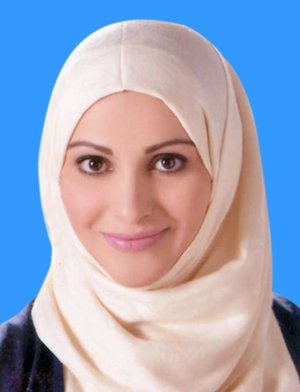أماني حامد
- طبيعة العمل
- أكاديمي
- المهنة
- مدرس
- البريد الإلكتروني
- [email protected]
- هاتف المكتب
- (+970) 9 2345113 Ext. 2768


أماني حامد
- طبيعة العمل
- أكاديمي
- المهنة
- مدرس
- البريد الإلكتروني
- [email protected]
- هاتف المكتب
- (+970) 9 2345113 Ext. 2768
- Course Title
- Pharmaco-economic s and Rational Use of Drugs
- Course Number
- 7302503
- Instructor Name
- أماني حامد
- Contact Information
- [email protected]
- Semester(s) and academic year(s)
- First Semester -4
- Compulsory / Elective
- Elective
This is an elective course in the curriculum. This course introduces students to the basic concepts of pharmacoeconomics. It allows students to gain practical experience in the development of economic evaluation of pharmaceuticals. The topics covered included assessment of effective data, costs, quality of life assessment and the development of economic models of cost-effectiveness. In addition, rational use of medication and the appropriate drug use according to the clinical need with the lowest cost to patients and community are also studied. Also, WHO guidelines and indicators of rational use of medicines in the community will be taught. Indicators of rationality will be discussed. National healthy policies used to rationalize community drug used will be discussed.
To outline economic principles that are used in pharmacoeconomics and interprets and evaluates pharmacoeconomic articles that used the following type of analyses: Measuring and estimating cost-minimization analysis, cost-effectiveness analysis, cost-utility analysis, cost-benefit analysis and health-related quality of life and to discuss how a pharmacy service can be evaluated using pharmacoeconomic approaches. Also to make students able to understand and describe the rational use of medicines which requires that patients receive medications appropriate to their clinical needs, in doses that meet their own individual requirements, for an adequate period of time, and at the lowest cost to them and their community. Economic and health impact of RUM will also be discussed. Concepts of EDL, STG will be emphasized.
By the end of the course, the student will be able to:
a. Knowledge and Understanding:
a.1. Describe how post-marketing surveillance is done to monitor for unwanted effects and other safety-related aspects of drugs.
a.2. Outline economic principles that are used in pharmacoeconomics
a.3. Discuss how a pharmacy service can be evaluated using pharmacoeconomic approaches.
a.4. Recognize the rational drug use and how to apply it in the medical field.
a.5. Recognize irrational drug-use problems.
b. Intellectual Skills
b.1. Interprets and evaluates pharmacoeconomic articles
b.2. Compare between rational and irrational drug therapy for selected diseases.
b.3. Analyze relevant information for clinical case notes and assess problems in the cost effective management of patients.
b.4.Analyze relevant information for clinical case notes and assess problems in therapeutic management of patients to minimize irrational use of medications
c. Professional and Practical Skills
c.1. Evaluate and solve cost-related and patient-related problems.
c.2. Design monitoring plan for rational drug use and solve problems of irrational drug use
d. General and Transferable Skills
d.1. Search internet database for new updates in treatment guidelines.
d.2. Write a report and give oral presentations.
d.3. Work coherently and successfully as a part of a team.
d.4. Appreciate team work in a seminar.
- Pharmacoeconomics: Principles and Practice 1st Edition, by Lorenzo Pradelli (Author), Albert Wertheimer (Author)
- Essentials of Pharmacoeconomics (Point (Lippincott Williams & Wilkins)) Second Edition by Karen Rascati PharmD PhD (Author)
REFERENCES
- Recent original and review articles
- Essential Drugs Monitor web site
- Priority Medicines web site
- Promoting Rational Drug Use in the Community
- World Health Organization. The Role of Education in the Rational Use of Medicines. Massow, Fr. Von, Korte, R., Ndele, J.K. Guidelines to rational drug use. Macmillan
| Activity | Percent (%) |
|---|---|
| exams | 70% |
| Seminars and review presentation and Moodle online discussion | 30% |